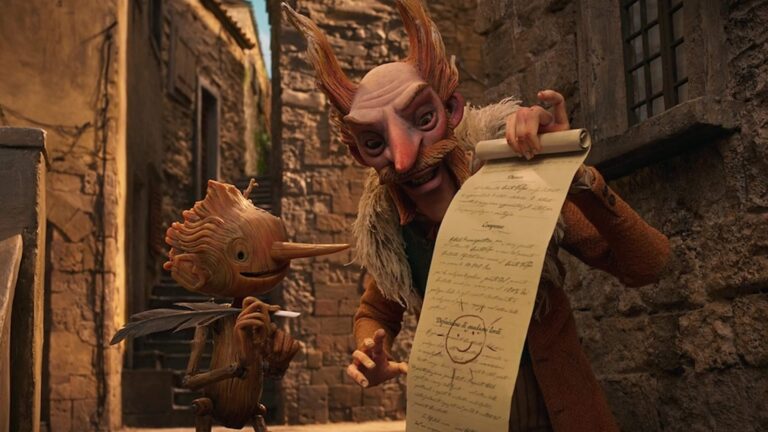A Conversation on Story with Journalist and Film Historian Mark Harris

Mark Harris, journalist, best-selling author of Pictures at a Revolution and Five Came Back, which was adapted into a documentary for Netflix, knows a thing or two about how to write a story. His non-fiction books, while not exactly screenplays or teleplays, were such large successes because of his ability to craft moments in history into compelling narrative. As an editor once told him, “You’re not writing an encyclopedia — make sure you’re telling your story.” Harris also has a wonderful eye for watching and dissecting story as a film historian.
Currently working on the ultimate biography of the legendary Mike Nichols, Harris recently joined host Aaron Tracy as a guest on Yale Podcast Network’s To Live and Dialogue in LA. The two discussed some of Harris’s favorite topics: the Oscars, films of the 60’s, his approach to writing, and of course, Mike Nichols. Below are some highlights from the conversation.
On The Responsibility of Turning History into Story
When Harris is working on a project, he is methodical in his research and wants to cover all bases. His advice is not only helpful for any aspiring film biographers out there, but anyone looking to write a script based on true events. He details his need to talk to everyone he possibly can to piece his story together. He’s detailing events that we already know happened — so it’s his job to find out why they happened. He’s a journalist with a detective’s hat on. But not everyone is willing to talk. Some experiences, some memories, people would rather leave buried. As Harris says, “One thing I always try to be aware of when I’m working on these books is that history to you is [the subject’s] life to them… You have to be willing to adjust.”
He continues, “It’s your job to make sure they’re represented as fairly as possible and to make sure that you don’t punish them for their unwillingness to participate because the truth is, nobody owes you an interview. Some people really want to talk about their work, other people… don’t. If I couldn’t get Faye Dunaway I was going to ask everyone about her… or [use] anything anyone else said about her. So you just kind of have to try and fill in the painting as completely as possible with the tools you have.”
On How The Oscars Write Their Own Yearly Story
If anyone follows Harris on Twitter, they’ll know he’s an avid Oscars buff, willing to share his thoughts on the Academy, good or bad. He looks at the ceremony in an interesting way. Going back to the theme of story, he sees the awards almost as a way for the industry to tell the story of how they want to be represented that year — not necessarily what movie was the “best” or not.
As Harris says, “It’s like saying, this is what we think we’re all about. And that is such a moving target because not only does the stuff they honor change and sort of write a new chapter in the history of Hollywood from year to year but as we’ve seen in the last five years the definition of ‘we’ has changed a lot. So we’re in this really interesting place now where the ‘we’ that gets to make these decisions has changed 25 to 30 percent in the last five years… I think that eventually, in the next few years, we’re going to see a new definition of what the broadest parameters of a good movie, according to the Academy, can be.”
On Embracing the Challenge of a Story
Harris’s second book, Five Came Back, wasn’t as obvious of project choice as his first, Pictures at a Revolution. His first book covered a topic that was near and dear to his heart: movies of the ’60s. The second book was about something he admits he actively avoided: World War II films and the war in general. So why on earth would he choose to write an entire book about it? It was the challenge of it that inspired him.
Harris explains, “Instead of looking at the 1960s, which was a movie period I always had an immense fondness for, I started looking at World War II, which was a movie period I had always avoided and had only become recently conscious of having avoided. My father was a World War II veteran, I didn’t listen to his [war] stories, I could never understand what was going on in battle movies, I’m not a war buff… and I thought, I need to understand a little bit more why I’m shrinking from this.”
On the Best Way to Tell the Story of Mike Nichols
Currently at work on his biography of Mike Nichols, this is a project unlike any other that Harris has done. Yes, it’s film history, in a sense, just like Five Came Back and Pictures at a Revolution, but this is the history of one man. One man’s story. A man who is revered and celebrated in his industry as one of the best to ever to do it. Harris decided the best way to structure something like this would be “cradle to the grave” style: from point A to point B.
“[Mike Nichols] is an Everest of a career,” Harris says. “Even after you get past him as a performer, which was a really substantial chapter in the history of improv comedy, you have fifty years of movies and simultaneously, fifty years of theatre, which is a story I really want to tell and give full space to.”
Harris continues, “One of the things I’m trying to do is make the ongoing creative life of a director make sense to me, and thus make sense to you. How do you make the choices that end up defining your career for fifty years? It seems to me the way to tell that story is in order because I don’t want you to get to Mike Nichols in his sixties without understanding how he got there. So at the risk of being boring, I’m going to tell you the story from the beginning…”
On Seduction, Negotiation, and Fighting - Storytelling Tips from Mike Nichols
Nichols has famously said that if you’re writing a scene and it doesn’t have either a seduction, negotiation, or a fight, it needs to be cut because otherwise, it’s just filler.
Harris breaks the advice down, saying, “Seduction/negotiation/fight was Mike’s version of [starting a scene late, ending a scene early as a writer] and it’s a great one. I should say it partly comes from his work with Elaine May. It even predates his work as a director because he often says when he and Elaine were on stage together, improvising something, she would say, ‘When in doubt, seduce.’ So I think he understood that seduction was as powerful a motivator in a scene as fighting or negotiation.”
Listen to the podcast on iTunes here.
 Travis Maiuro is a screenwriter and freelance film writer whose work has appeared in Cineaste Magazine, among other publications.
Travis Maiuro is a screenwriter and freelance film writer whose work has appeared in Cineaste Magazine, among other publications.
For all the latest ScreenCraft news and updates, follow us on Twitter, Facebook, and Instagram.
Tags
Get Our Screenwriting Newsletter!
Get weekly writing inspiration delivered to your inbox - including industry news, popular articles, and more!



























